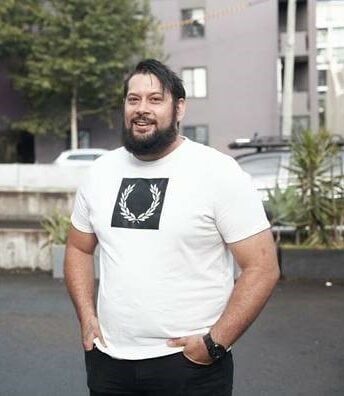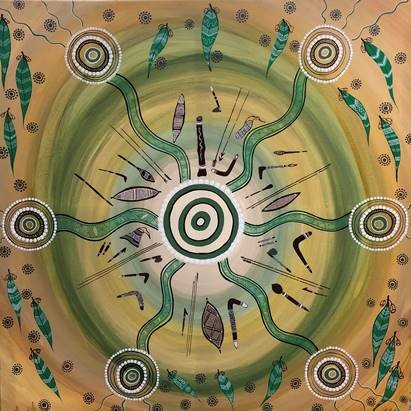Our Story
Learn why we exist

Wil Briggs (at left) and Levii Griffiths are case managers with the Haymarket Foundation’s Bourke Street Program.
They also happen to be good friends.
We both identify as Aboriginal – so clients who have Aboriginal and Torres Strait Islander backgrounds immediately have a connection to that. They know there are other Aboriginal and Torres Strait Islander fellas as soon as they call to make a query about the service. It means they want to reach out more. It is about connecting with culture and community: there are often just a few degrees of separation.
That trust extends to other areas. It means that we can make recommendations and these clients are more likely to take that on. There is a level of trust and rapport from the get-go.
Having said that, the Bourke Street Program is a post-rehabilitation living skills program for men from a range of backgrounds who are recovering from problematic substance use. We use a biopsychosocial model in areas around recovery skills, physical fitness, mental health, self-care, living skills, housing, education and employment.
We think that the connections with Aboriginal and Torres Strait Islander clients are made because they don’t feel like a number in the system. We show understanding and empathy using a client-centred approach.
We recently completed a grant to improve access and equity to the program for Aboriginal and Torres Strait Islander clients.
There were a number of recommendations, but amongst them, was changing our language and imagery. We commissioned Wiradjuri artist Kylie Cassidy (see image below) – the six circles around the outside of the image represent the six houses which are part of the Bourke Street Program. Kylie also did the artwork for the Roosters’ 2020 jersey.

The proportion of Aboriginal men seeking out the service has almost tripled in recent months. Part of that is the grant, but we also like to think that it’s also got something to do with hiring Aboriginal staff! The word-of-mouth recommendations have led to people from as far away as Moree and Coffs Harbour contacting us.
One Aboriginal guy was socially awkward and had difficulty talking with others. He now reaches out to others in early recovery. We think that’s because he’s happy and supported and can see the value of the program.
When we focus on clients’ strengths rather than their weaknesses, we can help them focus more on what they can achieve rather than what they can’t. This way, they build more confidence and become more self-supporting.
To help support this and other much-needed programs, we would welcome your generous tax-deductible donation here
This story will also appear in the Network of Alcohol and other Drugs Agencies (NADA) publication.